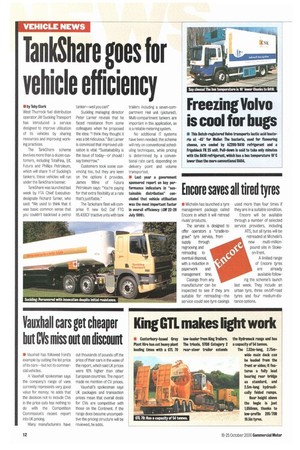TankShare goes for vehicle efficiency
Page 14

If you've noticed an error in this article please click here to report it so we can fix it.
II by Toby Clark West Thurrack fuel distribution operator JW Suckling Transport has introduced a service designed to improve utilisation of its vehicles by sharing resources and improving working practices.
The TankShare scheme involves more than a dozen customers, including TotalFina, Elf, Future and Phillips Petroleum, which will share 11 of Suckling's tankers; these vehicles will run under the TankShare banner.
TankShare was launched last week by ETA Chief Executivedesignate Richard Turner, who said: "We used to think that it was basic common sense that you couldn't backload a petrol tanker—well you can!"
Suckling managing director Peter Lamer reveals that he faced resistance from some colleagues when he proposed the idea: "I think they thought it was a bit ridiculous." But Lamer is convinced that improved utilisation is vital: "Sustainabihty is the issue of today—or should I say tomorrow" Customers took some convincing too, but they are keen on the options it provides. James Milne of Future Petroleum says: "You're paying for that extra flexibihty at a rate that's justifiable."
The Tankshare fleet will comprise 11 new 6x2 Daf FTC 85.430CF tractive units with tank trailers including a seven-compartment Heil unit (pictured). Multi-compartment tankers are important in this application, as is a reliable metering system.
No additional IT systems have been needed: the scheme will rely on conventional scheduling techniques, while pricing is determined by a conventional rate card, depending on delivery point and volume transported.
• Last year a government sponsored report on key performance indicators in "sustainable distribution" concluded that vehicle utilisation was the most important factor in overall efficiency (CM 22-28 July 1959












































































































